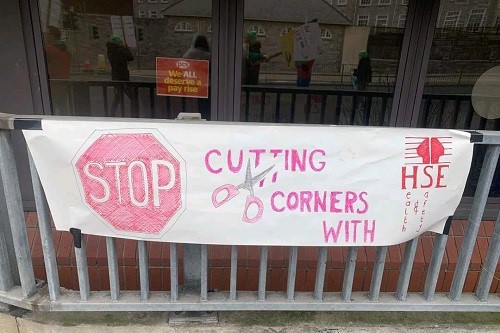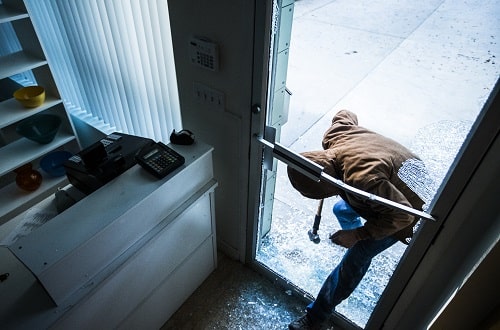HSE inspectors and scientists joined 133,000 civil service workers to strike for fair pay on Wednesday 15 March, also Budget Day.
News
HSE inspectors and scientists in Budget Day strike action
HSE members of Prospect, the civil service union, stopped work in the first strike action of its kind in nearly 20 years.
The strike was called to demand fair pay which has fallen in real terms against rising inflation.
Prospect said that incomes of its members in the public sector including HSE had declined by up to 26 per cent in the last decade. Last year, the government offered HSE a three per cent pay rise.
 15 March represented the first strike by HSE members on grounds of pay since 29 March 2004. Photograph: PCS / LinkedIn
15 March represented the first strike by HSE members on grounds of pay since 29 March 2004. Photograph: PCS / LinkedIn
General secretary of Prospect, Mike Clancy, said the situation represented an ‘existential threat’ to HSE’s ability to function: “Bills are rocketing and pay is falling ever further behind the private sector leaving our members with no option but to take industrial action.”
In a blog for Prospect, Sarah Taylor, acting HM principal inspector of health and safety, described why inspectors were striking: “Recently, I went to inspect a factory in West Yorkshire and when we arrived on site, the health and safety manager said to me and my colleague, “Oh, I didn’t think you came out anymore unless somebody had died?”
“That was a real eye-opening moment for me. That’s the state we’re in now, where the duty holders think that we’re not going to show up.
“In terms of experienced inspectors, they’re leaving HSE in droves. The lack of staff is affecting every aspect of our work.”
She added: “The lack of inspectors, the trouble with retaining staff and under-resourcing goes hand-in-hand with chronic low pay.
“None of us set out to be HSE inspectors to get rich, but many of my colleagues are finding that they can get more money for less stress and without the exposure to trauma.”
In the past decade, HSE’s funding fell by 58 per cent from 2009 to 2019, according to research by Unchecked UK.
The number of inspectors also fell by a third in the past eleven years, from 1,511 inspectors in 2011 to 1,018 inspectors by the latest count in 2022.
Wednesday 15 March represented the first strike by HSE members on grounds of pay since 29 March 2004.
The strike covered many public sector employers including the Met Office, Defence and Science Technology Laboratory (Dstl), Intellectual Property Office and UK Research and Innovation.
More than 133,000 civil service workers joined. More civil service workers are to strike with the Passport Offices due to take five weeks’ strike action in April and May.
Mike Clancy added: “We represent people who are engineers, scientists and specialists and these are people who have not taken industrial action in over a decade. These are not people inclined to stop work. They’re doing it because they faced a decade of pay erosion.”
NEWS

Calls for more mental health support for NHS workers grow amid burnout fears
By Kerry Reals on 12 April 2024
Calls for the reinstatement of UK government funding for the provision of mental health and wellbeing hubs for NHS workers have amplified, as a new survey by the UNISON union warns that the threat of burnout could compound healthcare staff shortages.

Assault of retail workers to become a standalone crime in UK shoplifting crackdown
By Kerry Reals on 10 April 2024
Retailers have welcomed a UK government decision to make assaulting a shop worker a standalone criminal office in England and Wales, but civil liberties groups have criticised plans to ramp up the use of facial recognition technology in town centres to help catch shoplifters.

Teaching union calls for HSE to include suicides in work-related deaths figures
By Kerry Reals on 03 April 2024
Teaching union NASUWT has reiterated calls for suicides to be included in the Health and Safety Executive’s (HSE’s) annual figures on work-related deaths, and is calling for suicide prevention training to be provided for all school leaders.


